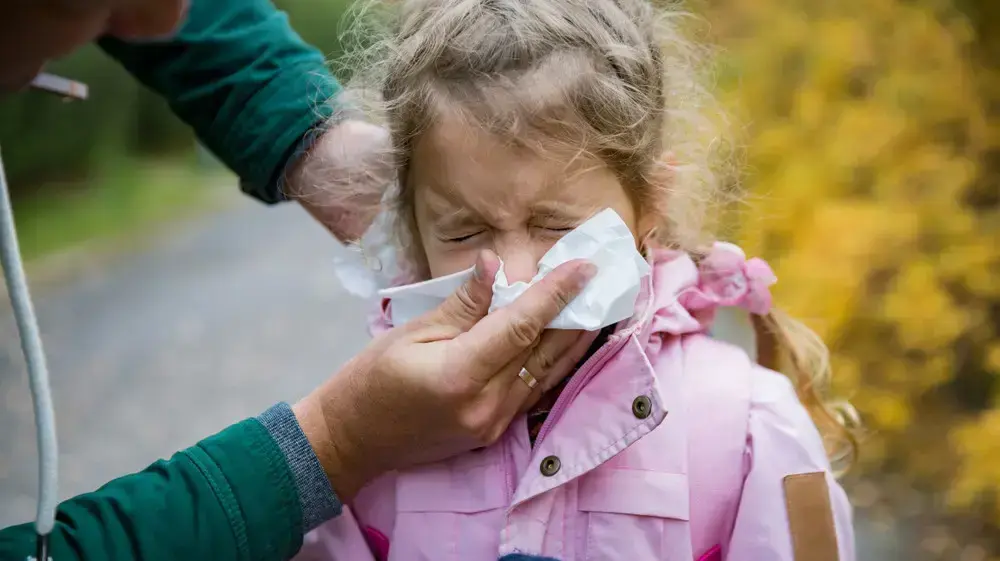A 4-year-old girl who was not vaccinated against the flu was about to die and has become blind because of a complication caused by the disease.
Initially Jade DeLucia, an Iowa resident, seemed to have a common cold. "He was running, having fun, eating normally, asking for snacks," recalls his mother. "It was just a small virus. I would get over it," he thought then.
But on Christmas Eve, Jade did not get up: he was unconscious. She was transferred to an emergency room, where she had seizures. Due to her serious state of salur she had to be airborne to the pediatric hospital of the University of Iowa, where she spent two weeks under intensive care.
On December 31, neurologist Theresa Czech informed the parents of the diagnosis: Acute Necrotizing Encephalopathy , or ANE, usually caused by a viral infection.
The condition is very unusual. A study consulted by Czech found that of four children who contracted it, three died.
Apparently Jade began to recover and everything seemed to be going well, until the parents and doctors realized that he did not see. "(The disease) has affected the part of his brain that controls sight , and we don't know if he will recover it," the doctor told CNN. "We'll know in about three to six months. The recovery he has in six months is probably the best he'll get."
As a consequence of the condition, the girl could also have cognitive or developmental problems, such as learning problems, the neurologist added. Considering the state in which he arrived at the hospital, he said, his recovery has been "fabulous" and Jade is "very lucky."
High number of infant deaths
In the first week of January alone, five children died from flu complications, which brings the total number of the current season - from October 1 to January 4 - to 32, the Control and Prevention Centers reported of Diseases (CDC). In the previous season, that figure was half: 16.
Because the current season does not end until the end of April or the beginning of May, it is foreseeable that more infant deaths will be reported.
Experts consulted by NBC explained that the flu season so far has been distinguished from previous years with an early increase in a strain of the virus called B / Victoria. It usually does not appear until the end of the season, in early spring.
" Strain B has a predilection for children, " said Dr. William Schaffner, a professor at Vanderbilt University and medical director of the National Foundation for Infectious Diseases. "We are seeing many children and more young adults today. That is a reflection of the domain of influenza B."
The other strain that circulates is H1N1, that causes influenza A, which also usually affects the youngest.
The CDC estimates that at least 9.7 million people have had the flu this season, with 87,000 hospitalizations and 4,800 deaths reported so far . In Los Angeles alone, 70 deaths have been reported for that cause.
Influenza complications, in addition to the encephalopathy that affected Jade, include inflammation of the heart (myocarditis), muscle tissue (myositis, rhabdomyolysis) and multiorgan failure (for example, respiratory and renal failure).
In addition, respiratory tract infection can trigger an extreme inflammatory response in the body and cause sepsis, a generalized infection that often leads to death.
Forty-nine states, plus Washington, DC and non-continental US territories have reported regional or widespread flu. Hawaii is the only exception.
A less severe season
However, the season seems to be lighter than the previous one precisely because the strains that circulate attack mostly younger and healthier individuals.
Most flu complications occur in people 65 years of age or older. On the other hand, the CDC report reveals that 5.8% of outpatient medical consultations across the country were due to the flu, compared to 7% a week ago.
Schaffner told NBC News that the vaccine seems to be a good combination for the H1N1 strain, but perhaps not as good for the B strain that has been circulating, however, " even if you get the flu vaccine and get it, having Receiving the vaccine makes it very likely that his illness is less severe, "he explained. "It will be shorter and less likely to have the complications of pneumonia and have to be hospitalized."
Even if you have already contracted the flu, experts say, it is important to get vaccinated. A 2018 study determined that people who get immunized each year have less risk of dying or being hospitalized if they get the disease.
Edited by Ivette Leyva
Read also:
The Sars-like virus that causes pneumonia in China puts the medical community on alert
Alert for Disease X, a mysterious plague that can exterminate Humanity








